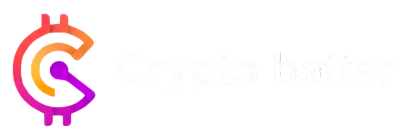Challenges Facing DAOs in the Current Landscape
DAOs have been hailed as a revolutionary concept that empowers decentralized decision-making. However, one of the prominent challenges facing DAOs in the current landscape is the lack of established governance structures. Without clear rules and procedures in place, decision-making processes within DAOs can become chaotic and lead to disagreements among participants. This can hinder the effectiveness and efficiency of DAO operations, potentially hampering their ability to achieve their intended goals.
Another challenge that DAOs face is the issue of security vulnerabilities. Given that DAOs operate in a digital environment, they are susceptible to cyber attacks and malicious actors seeking to exploit weaknesses in the system. Ensuring robust security measures and protocols is crucial to safeguarding the assets and information stored within the DAOs. Failure to address these security concerns can undermine trust in the system and deter potential participants from engaging with DAOs.
Benefits of Implementing DAOs in Various Industries
Decentralized Autonomous Organizations (DAOs) have been gaining traction across various industries due to their potential to streamline operations, enhance transparency, and promote community engagement. By leveraging blockchain technology, DAOs offer a decentralized decision-making structure that empowers stakeholders to participate in key governance processes. This not only fosters a sense of ownership among participants but also increases the efficiency of decision-making within organizations. Furthermore, DAOs can help increase trust and eliminate the need for intermediaries, leading to cost savings and improved accountability.
In addition to enhancing governance processes, implementing DAOs in various industries can also facilitate automated execution of smart contracts. This feature allows for the creation of self-executing agreements that are built into the DAO's code, ensuring that transactions are carried out transparently and without the need for manual intervention. This automation can significantly reduce the potential for errors and fraud, leading to increased operational efficiency and greater trust among stakeholders. Overall, the benefits of integrating DAOs in different industries extend beyond cost savings to include improved transparency, accountability, and automation of processes.
Potential Risks Associated with DAOs
While DAOs offer many benefits, they also come with their own set of risks that participants must be aware of. One primary risk is the potential for bugs or vulnerabilities in the smart contracts that govern the DAO. These vulnerabilities can be exploited by malicious actors to manipulate the DAO's decisions or siphon funds from the organization.
Additionally, DAOs face challenges related to governance and decision-making processes. Due to their decentralized nature, reaching a consensus on important issues can be difficult and time-consuming. This can lead to disagreements among participants and hinder the effectiveness of the DAO in executing its objectives.
Technological Innovations Impacting the Future of DAOs
As the landscape of decentralized autonomous organizations (DAOs) continues to evolve, there are several key technological innovations shaping the future of this space. One significant advancement is the integration of smart contract platforms that enhance the functionality and security of DAO operations. These platforms enable the creation of complex, self-executing agreements that streamline decision-making processes within DAOs, ultimately increasing transparency and reducing the risk of manipulation or fraud.
Another technological innovation impacting the future of DAOs is the development of robust governance mechanisms powered by blockchain technology. These mechanisms allow for more efficient voting processes, providing participants with a decentralized framework for decision-making and resource allocation. By leveraging blockchain technology, DAOs can ensure the integrity and immutability of their governance processes, fostering trust and accountability among community members.
Regulatory Frameworks for Governing DAOs
Regulatory frameworks for governing DAOs have become a critical topic of discussion in the blockchain and cryptocurrency space. As decentralized autonomous organizations gain more prominence, the need for clear guidelines and oversight mechanisms becomes increasingly important. Without proper regulation, DAOs face challenges related to legal compliance, transparency, and accountability.
Several jurisdictions are exploring different approaches to regulate DAOs, with some countries opting for a cautious approach to ensure investor protection and prevent illicit activities. Regulatory bodies are grappling with the unique nature of DAOs, which operate without centralized control, making it challenging to apply traditional regulatory frameworks. Striking the right balance between fostering innovation and protecting stakeholders will be crucial in shaping the future regulatory landscape for governing DAOs.



